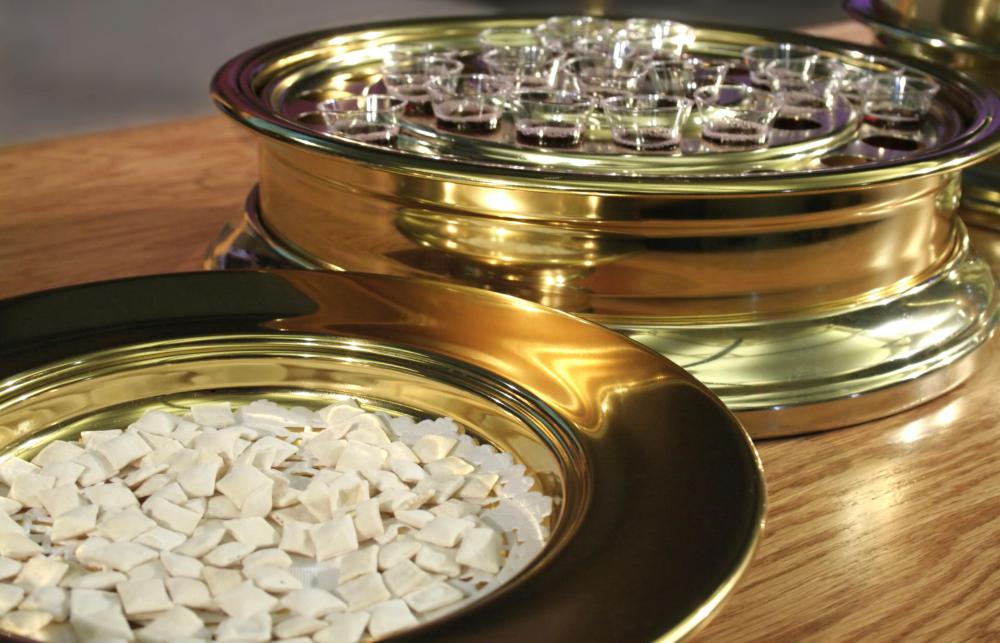At PracticalAdultInsights, we're committed to delivering accurate, trustworthy information. Our expert-authored content is rigorously fact-checked and sourced from credible authorities. Discover how we uphold the highest standards in providing you with reliable knowledge.
What Is Sacramental Theology?
In Roman Catholicism and some other Christian groups, sacramental theology is the belief that God provides grace to humankind through certain external acts that have been instituted by Christ. The seven sacraments in Roman Catholicism are the sacraments of Baptism, Eucharist, Reconciliation, Confirmation, Marriage, Holy Orders, and Anointing of the Sick. Some Christian groups may recognize at least some of these sacraments, but many others refer to them as "ordinances" rather than sacraments and differ in their understanding of the grace expressed through them.
Sacramental theology developed during the Middle Ages. The word sacrament itself comes from the Latin meaning "that which produces holiness." It was first used as in Christian theology as a translation of the Greek musterion, or "mystery." The term sacrament was used loosely in early church history, as some writers referred to the "sacrament of labor" or the "sacrament of the Lord's prayer," neither of which has been recognized as one of the official sacraments of the church. Augustine, writing in the fifth century A.D., defined the sacraments as the "visible form of invisible grace." Later, Thomas Aquinas refined this definition to refer specifically to the acts ordained by Christ for sanctification, which is the definition that persists into modern times.

In sacramental theology, the sacraments are believed not only to represent sanctification, but to be the means by which sanctification is achieved. The best known example of this is the Catholic Eucharist or Communion ceremony, in which bread and wine are believed literally to become the body and blood of Christ, rather than merely symbols of them. This belief is known as transubstantiation. Through transubstantiation, the believer who eats and drinks the literal body and blood of Christ is sanctified, or made holy, through them.

All major Christian groups practice baptism and communion in some form or another, and some also recognize confirmation and marriage as rites of the church. Many Protestants, however, teach "ordinance theology" rather than sacramental theology. According to this belief, baptism, communion, and other practices of the church are not the actual means by which humans receive grace, but are the representation or reminder of grace that comes through faith. Some Protestants believe that Catholic sacramental theology is flawed because it implies that salvation comes through works, rather than through faith. They may also refrain from referring to the water used for baptism or the bread used for communion as holy in and of themselves, but rather refer to them as representations of holy objects.
AS FEATURED ON:
AS FEATURED ON:













Discuss this Article
Post your comments